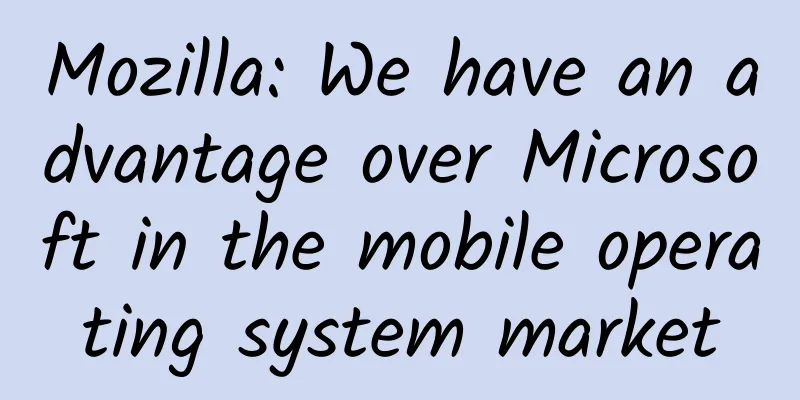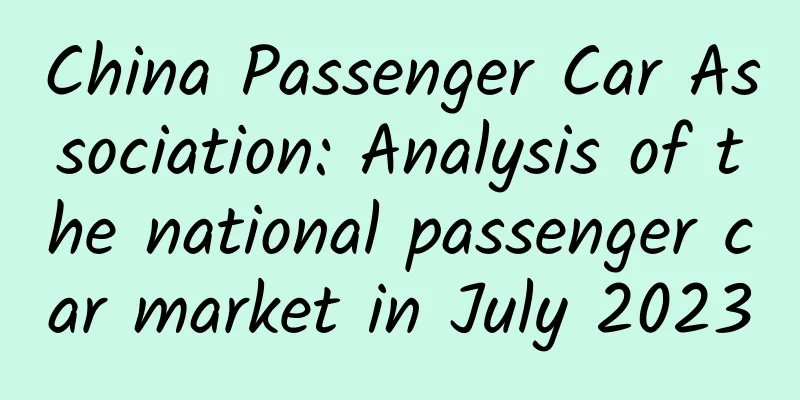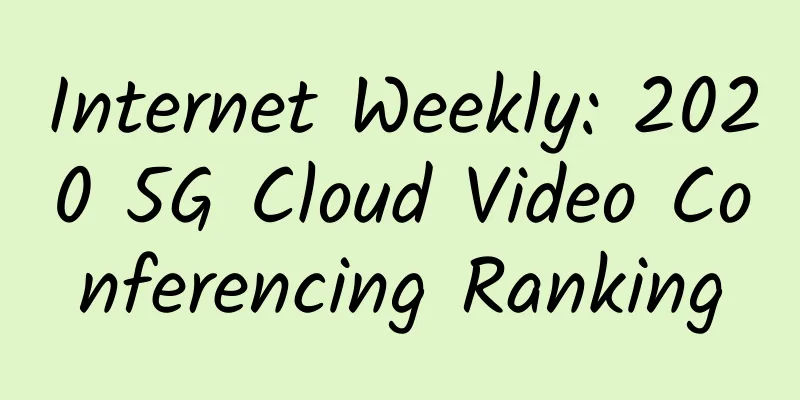Mozilla: We have an advantage over Microsoft in the mobile operating system market

|
Mozilla is an open source Internet software company that developed the Firefox web browser. In recent years, it has been trying to become a platform that is closely related to developers and users with Firefox OS. Today, Mozilla announced a series of new cooperation agreements: according to the agreement with Verizon Wireless, feature phones equipped with Firefox OS will be sold in the US market first; according to the agreement with Orange, new phones equipped with Firefox OS will enter the African and Middle Eastern markets.
In an interview with Andreas Gal, Mozilla’s CTO and VP of Mobile, I asked a few interesting questions: What challenges does Mozilla face as it moves into new areas like cars? And why does it not matter to Mozilla that you still can’t use Uber on a Firefox OS phone? Q: Neil Mawston, an analyst at Strategy Analytics, said that Firefox OS has become the fastest growing smartphone operating system in the industry, but the problem is that Firefox OS previously had a very small user base and was only popular in some countries in Latin America and Western Europe. How do you convince potential partners that you are becoming increasingly important in this industry? A: If you look at the Android platform, you'll see that it's not a healthy ecosystem because it's not the kind of experience that allows device manufacturers to differentiate. This is only going to get worse, and you can see it with projects like Android One, where Google decides what the phone looks like and what chips it has. For us, this means opportunity. Yes, we're late to the game, a few years later than our competitors, but that's because mobile Internet was late to the game. A few years ago, you couldn't do even the smallest activity on the mobile Internet, and we hope that will be different in the future. Q: When will we see Firefox OS in cars? Why aren't you working more on other types of mobile devices? We started by focusing on smartphones because the market is huge. There are billions of people who don't have access to the internet, and they're going to use their phones to get there. As for things like cars, we're not going to think about them until we're ready. We're a much smaller company than Google, so we're going to focus on doing one thing well. We generally follow the same approach that we recently took with Panasonic to produce the first batch of TVs. Panasonic came to us to expand the engineering team and also take on the work of integrating Firefox OS into the TV. This is the model for our other business. We will negotiate with partners, with any manufacturer who wants to integrate Firefox OS into other device categories. We are negotiating with many different partners. Just this week, we are negotiating with multiple electronic device manufacturers. We are a latecomer in the mobile field, but in the Internet of Things industry, no one has established a leading position so far, and we are very interested in negotiating. One thing worth mentioning here is a prototype device developed by Monohm, a "retro" smartphone called Runcible. Q: Targeting emerging markets puts your goals in line with Facebook, which is also investing a lot of resources in emerging markets. Do you think you will cooperate with them? Given that Google is also involved in the Internet.org project and Facebook has established extensive cooperation with iOS and Android manufacturers, is the door closed for you to cooperate with Facebook? We have an integration with Facebook on the web (the "Do Not Track" social API) and have a great relationship with them. Internet.org is something we knew about and talked about before. It's true that they are more interested in the Android platform, and I don't fully understand what they are trying to achieve. Internet.org feels like a "Facebook for everyone". We appreciate the idea of connecting people more, but we want to make sure it makes services accessible to everyone. It's important that it doesn't just apply to services that are in a closed environment. I also think it's difficult for Facebook and Google to get along in areas where their interests conflict. The two companies are competitors. Why did you move to feature phones when everyone was obsessed with smartphone growth? Even before today, Mozilla was also committed to this approach. About a third of all phones in the U.S. are feature phones, and we're not going to see a big decline in feature phones until 2018 or 2019. The overall market is growing faster than it's declining. So we're trying to capture that growth. It's our strategy to go into the phone market, to go into feature phones instead of high-end smartphones like the iPhone. In addition to Verizon, there are other operators that have expressed interest in Firefox OS. This is just the first specific partnership agreement, but it's not an exclusive agreement, and sometimes you see operators willing to even work with competitors to create a neutral platform. Q: Microsoft has been trying to break the Google-Apple duopoly in mobile operating systems, but has made little progress. Why do you think you have a chance here? Firefox OS is different from Windows Phone in two ways. First, we are targeting a different audience than Windows Phone. Windows Phone is trying to attract iPhone users to the Microsoft camp, which is very difficult. We don't track data for Windows Phone in emerging markets. Those low-end devices are cheap by US standards, but when it comes to users in emerging countries, it becomes a different definition. The second problem is that Windows Phone is a proprietary ecosystem that uses Microsoft's language. This is even harder to solve. One of the reasons why Microsoft has not made much progress in the mobile market is that they force app developers to use this language. Our situation is different from Microsoft. We don't have to go to Facebook and say, "Can you build a Firefox experience?" They don't have to do that. Although our app is not as polished as the native Firefox app, there are far fewer problems to solve. We are only a few percentage points away from our competitors. Q: Native apps continue to define the way people use mobile devices, and you built Firefox OS around the mobile web. How do you think about the fact that some of the most popular mobile apps, like Uber, don't exist as mobile web apps? Yes, Uber doesn't exist in that form yet, but so far that hasn't been a problem. We don't need Uber in Senegal, for example. A more serious problem is making sure we can provide localized apps, which often means local news, local information, and local services for the most smartphone users. This is again a gap we have to close. Even Instagram is not fully optimized for mobile, but even if you can't take and share photos, at least you can get some of the experience of commenting on the web. But as we start to expand into more mature markets like the United States, then the content needs to be adjusted. We have to work more closely with the most well-known brands, which is crucial for us to expand into Japan and North America. English: Mozilla's CTO On Cars, Facebook And Why It Doesn't Matter You Can't Use Uber On Firefox OS [Editor: Lin Shishou TEL: (010) 68476606] |
<<: Google may force Android phones to encrypt in the future
>>: Server performance issues that PHPers should pay attention to – Tingyun Server trial notes
Recommend
White Wolf 2020.7.1 Silk Quilt Live Broadcast Unblocked Doujia Gameplay Detailed Explanation (Video Tutorial)
Course Description 1. Gameplay advantages: No acc...
Artificial intelligence predicts death: It is not the god of death, but helps humans live longer
Do not go gentle into that good night Old age sho...
The other side of the layoff wave: Don’t want to “roll” anymore, want to be “N+1”
Yuan Dian clearly remembers that the number of pe...
China Mobile takes drastic measures to eliminate WeChat! The new version of Fetion offers free data traffic
Some time ago, China Mobile started the "rec...
Chengdu boutique studio is praised by everyone who has been there
Appointment arrangements for Chengdu boutique stu...
Wetland Guardian, explore the magnificent transformation of the White Bone Peak!
This warm scene is a mother white-bone croaker fe...
6 tips to improve push opening rate of APP!
The main purpose of push is to promote activation...
Apple’s May App Store promotion summary report: Cleaning up tens of thousands of abandoned apps!
In May, Apple once again cleaned up a large numbe...
“Not Resting Until It Points South”: Tracing the Story of the Invention of the Compass
The picture above is the Sinan model. The picture...
Did its great-great-great-great-great-grandson grow back to look like it? The creatures in this lake have been trapped in the same year
Every February 2nd, North America welcomes the tr...
Brand Communication Perspectives for 2022
As long as it involves business, there will be ma...
5G accelerates the construction of new infrastructure, and these industries may explode in 2020
After 5G was commercialized in 2019, 5G is undoub...
Microsoft Spartan Browser Benchmark: A Qualitative Leap
Although the current Spartan browser is not yet p...
Can you get infected with influenza B after influenza A? Actually, there is no need for "after", and the person who infected you is still treating you...
Recently there is a topic called #Can influenza A...
Can a galaxy grow larger by swallowing another galaxy like a black hole?
This article is based on answering similar questi...









